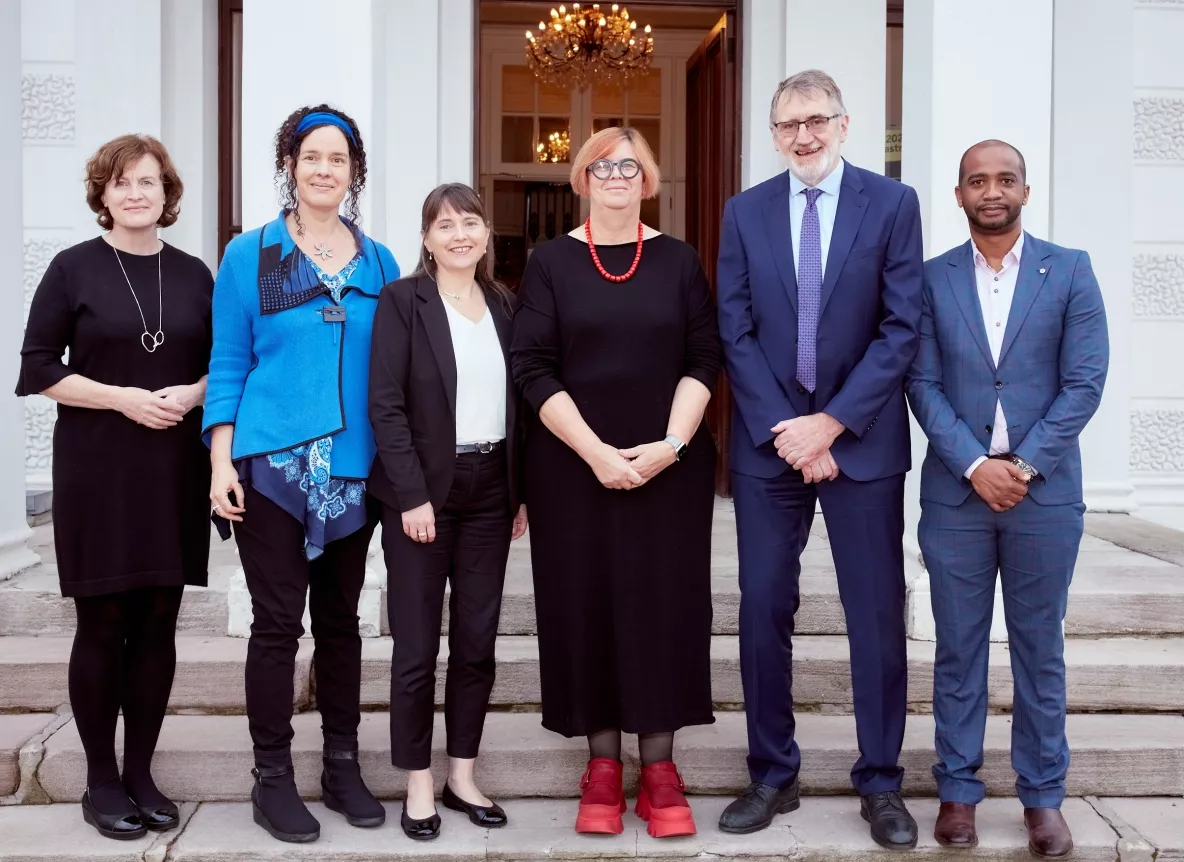

An innovative new collaboration between University of Limerick and the Department of Health will involve refugees and migrants directly in the development of public health policy.
UL has today (Monday) launched a new public health partnership between the World Health Organisation (WHO) Collaborating Centre for Refugee and Migrant Health, based in UL’s School of Medicine, and the Department of Health.
The Refugee and Migrant Health Partnership is funded by the Department of Health and is designed to involve refugees and migrants directly in the development of public health policy and will also fund bursaries for related teaching programmes and scholarships.
The WHO Collaborating Centre in UL is a designated centre of expertise that seeks to improve refugee and migrants’ meaningful involvement in health research. The Centre is committed to Participatory Health Research (PHR) which positions migrants and refugees as expert partners in the co-production of evidence about their health.
The collaboration was launched by UL President Professor Kerstin Mey, who said: “We are so proud to have the WHO Collaborating Centre, led by Professor Anne MacFarlane, here at UL. It is a unique centre that positions migrants and refugees as expert partners in the co-production of evidence about their health.
“UL is highly committed to the United Nations Sustainable Development Goals and this partnership meets a number of those goals and more.
“This partnership will mean that the Department of Health is directly informed by the perspectives and lived experiences of refugees, migrants and their advocacy organisations.
“The partnership will also contribute to further building the capacity of refugees and migrants to become involved as active agents in national and international public health responses, with the Department of Health, the HSE and specialist researchers in the Higher Education sector.
“We thank the Department of Health for funding the partnership and it will and has already made a genuine difference to the scholars and the quality of research conducted in this area – and ultimately to the health service itself,” Professor Mey added.
Professor Anne MacFarlane, Lead for the UL WHO Collaborating Centre, Professor of Primary Healthcare in UL’s School of Medicine and Co-Director of the Participatory Health Research Unit, said: “This new partnership with the Department of Health is the first of its kind in Ireland. It is designed to create new spaces to bring the voices and experiences of refugees and migrants living in Ireland into policy making processes. This will allow us to learn together about the best ways to adapt services to meet their health needs.
“Otherwise, there is a disconnect between what refugee and migrants need for their health and what they get. We know that this disconnect leads to negative health outcomes. The ultimate goal of the partnership is to optimise the health of refugees and migrants.”
In the coming four years, participatory and arts-based methods will be used to create spaces for dialogue between refugees, migrants and NGOs with academic and health sector colleagues to co-design strategies to improve refugees and migrants’ involvement in healthcare consultations, service planning and research.
Jim Walsh, Principal Officer, Drugs Policy and Social Inclusion Unit, Department of Health, said: “The Department of Health is committed to meeting the health needs of refugees and migrants. To do so, we must better understand the health challenges facing these groups, and how we can improve their access to healthcare services. We are pleased to partner with the UL WHO Collaborating Centre to directly involve those with lived experience of migration in finding novel solutions and perspectives to improve health policy and services for our refugee and migrant population in Ireland.”
The launch this Monday at UL heard from refugees, migrants and NGO partners linked to the WHO Collaborating Centre, the Department of Health, UL academics, students as well as colleagues from the WHO Health and Migration Office in Europe and from the Irish World Academy of Music and Dance at UL.
Professor Helen Phelan, Co-Director of the Participatory Health Research Unit and Director of the Irish World Academy said: “Migrant health is a key social issue of our time. Exploring innovative methods including the use of the arts is essential to support meaningful partnerships with migrant communities.”
The launch was also a celebration of Public Patient Involvement (PPI) in research, taking place as one of the first events of the month-long PPI Ignite festival, a network of universities, statutory and community partners committed to embedding PPI in research.
See www.ppinetwork.ie for more information about the range of events taking place throughout October.
